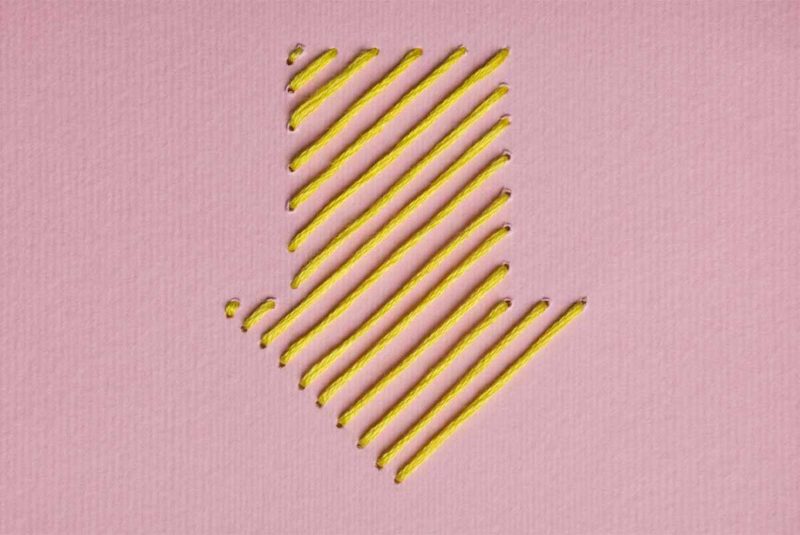Maybe you miscalculated your estimated taxes, and ended up with a bill you can’t afford.
Or maybe you’re new to the credit card rewards game, and want to earn points for paying Uncle Sam.
Either way, you’re wondering: “Can I pay my taxes with a credit card?”
The answer is yes. The answer to “Should I pay my taxes with a credit card?” Well, that’s a little more complicated. Generally, we’d say no — but in certain situations, paying taxes with a credit card could be a good decision.
Can I Pay My Taxes With a Credit Card?
Yes, you can pay federal taxes with a credit card.
The IRS gave consumers the right to pay with a credit card under the Taxpayer Relief Act of 1997. Most states will allow you to pay state income tax with a credit card, too.
It’s not always the wisest idea, for reasons we’ll get into below. But if you’re dead set on paying your taxes with a credit card here are a couple things to keep in mind:
- If you’re planning to use a credit card to earn rewards on your taxes, make sure you’re going to earn enough points, miles, or cash back to offset the fees that you’ll inevitably have to pay. You may want to apply for and use a card with a valuable signup bonus.
- If you’re planning to use a credit card so you can pay your taxes over time, use a credit card with a long 0% introductory APR offer. If you don’t think you’ll qualify for such a card, consider using an installment plan instead.
How To Pay Your Taxes With a Credit Card
No matter how you file your taxes, you’re free to pay any taxes owed via internet, phone, or mobile device. You can use a credit or debit card with all three payment options.
You can pay your federal taxes online by visiting the IRS website, selecting your payment processor (more on that in the next section), and clicking “Make a Payment.”
If you’d prefer to pay your federal taxes by phone, you can choose between the same three processors and call the appropriate payment hotline.
To pay state taxes online or by phone, visit your state’s tax website and follow the instructions. Each state’s website will likely look or operate a bit differently, but the payment options and process should remain fairly similar.
Why You Shouldn’t Pay Your Taxes With a Credit Card
While it’s a convenient option — and can help you avoid late fees from the IRS — here are four downsides of paying your taxes with a credit card.
1. You’ll pay fees
The IRS doesn’t accept credit card payments directly; instead, it has licensed several payment processors to accept credit card payments on its behalf.
These companies charge an additional fee on top of your tax bill — usually around 2%.
But keep in mind, that’s on top of the taxes you already owe. So if you’re looking at a $2,500 tax bill, you’ll pay around $50 extra just for the privilege of using your credit card.
You can also use a credit card when you e-file with a tax processing service, but fees will be even higher.
2. You’ll pay interest
If you plan to pay your credit card balance in full when the statement comes, you can skip this section.
But if you won’t have the money to pay it off, then note you’ll also owe interest on your credit card bill — which can quickly balloon out of control. While you should check your card’s terms, most credit card interest rates range from the mid-teens to upwards of 21%.
One way to avoid interest is by using a credit card with a 0% APR introductory period, and paying off the balance before the period ends. This can get you more time to pay your taxes (without paying hefty interest and penalties).
Or you could transfer your tax bill balance from one credit card to another — but you may have to pay a balance transfer fee for that service.
Both of these options are better than using cash-advance convenience checks. Since cash advances come with outrageous fees, we recommend avoiding them at all costs.
3. You won’t earn significant rewards
If you want to pay taxes with a credit card to earn rewards, you might end up disappointed.
That’s because cash back rewards cards generally top out at 2% for non-category purchases (like taxes), and the return on points cards is similar. In those cases, you’d merely offset the credit card fee.
One of the best flat-rate cards, provides 2% back for every purchase (1% on purchases, and 1% on payments). If you use it to pay through Pay1040.com, you’ll get a 0.03% cash back equivalent, after the 1.87% fee — which is inconsequential, but better than paying a fee.
When it comes to point cards, returns will vary depending on how you redeem the points.
For example, if you use the Chase Sapphire Preferred® Card, you’ll get 1X point per dollar when paying your taxes. If you can redeem those points for $0.02 each — by transferring to a travel partner — you’ll get the equivalent of 2% cash back, thereby offsetting the payment processing fee.
Quite a few airline and hotel credit cards could earn enough in rewards value to offset the fees, as well. To get the best redemption rates, you’d need to redeem your miles or points with the co-branded airline or hotel.
One of the biggest exceptions to these lackluster rewards comes in the form of signup bonus offers, which require a large amount of spending for a large reward — like 50,000 points for spending $3,000 in 3 months.
Paying your taxes with a credit card can help you land one of these signup bonuses. And if you get a 20% return on your spending with all those points, it’d more than make up for the 2% fee. Some cards also have annual bonus offers that work in a similar way.
Since some of the IRS credit card processors allow you to pay with these services, you could actually net a significant profit by paying with this particular credit card, though you’re limited to earning $1,500 at the 5% per quarter (then you’ll get 1%).
Just make sure to pay your bill in full so as to avoid any interest charges.
4. You could hurt your credit scores
Any time you make a large purchase and drive the balance up on your credit card, you could negatively impact your credit scores.
That’s because your credit utilization ratio, or the percentage of your credit limits you’re using, plays a major role in credit scoring models.
If your tax bill is big compared to your credit limit, putting taxes on your credit card could significantly decrease your credit scores. But luckily, this negative effect will only last until you pay down those balances.
Alternatives to Paying Your Taxes With a Credit Card
As you can see, there are many downsides to paying your taxes with a credit card.
So if you don’t have enough money in your bank account to pay your tax bill, you should consider signing up for a payment plan (also called an installment plan) with the IRS.
By doing this, you could pay less interest than you would with a standard credit card, and you also won’t affect your credit utilization and scores.
Delay your payment by 120 days
Think you can get the money together in the next four months?
If you owe less than $100,000 in combined tax, penalties, and interest, then you can enroll in a short-term payment plan with the IRS.
You’ll pay interest on the amount you owe (right now, it’d be around 5.5%), plus a late fee of 0.25% per month. If you owe more than $25,000, the IRS will automatically debit payments from your checking account.
Sign up for a long-term payment plan
If you owe $50,000 or less in combined tax, penalties, and interest, and have filed all required returns, you can apply for a long-term payment plan with the IRS.
This will allow you to make payments over a period of more than 120 days through automatic debits from your checking account.
This installment agreement comes with a host of fees:
- Online setup fee: $31 (If your income falls at or below 250% of the applicable federal poverty level, your fee will be waived.)
- Late fee: 0.25% of the balance per month
- Interest: 3% plus the federal short-term rate, which is currently 2.48% (Interest compounds daily.)
Should I Pay My Taxes With a Credit Card?
Now that you understand all your payment options, you’ll have to decide which one makes the most sense for you.
As an example, let’s say you have a $3,000 tax bill that you plan to pay off over six months. Here’s what each strategy would cost (on top of the $3,000 you already owe):
- 18% APR credit card with 2% cash back: Since the 1.98% credit card processing fee and 2% cash back basically cancel each other out, you’d pay 18% interest X $3,000 over 6 months = $159.
- 0% APR credit card: You wouldn’t pay any interest — just the 1.98% credit card processing fee X $3,000 = $59.40.
- Installment agreement: You’d pay a $31 setup fee + $45 (0.25% late fee = $7.50 per month for 6 months) + $82 in interest = $158.
Obviously, the 0% APR credit card comes with the lowest fees. But this option is only available if you can get approved for a new credit card, and will only save you money if you can pay off the entire bill before the intro APR period ends.
You’d also need to be vigilant about making your monthly payments, as missing just one could cause your card to switch to a very high penalty APR.
Alternatively, if you could pay your tax bill off over 4 months instead of 6, you should consider the short-term payment plan. With that, you’d owe $50.52 in interest, plus $30 in late fees, for a total of $80.52.
If, however, you’re simply interested in the rewards and convenience of making tax payments with a credit card, then at least make sure the following requirements are met:
- Your card earns rewards equivalent to at least 2% cash back (which may come from a signup bonus).
- You have high credit limits.
- You plan to pay your new balance in full to avoid interest, or you have a 0% interest rate (and will still make minimum monthly payments).
The bottom line: If you don’t have the money to pay your taxes right now, don’t panic. Between 0% APR credit cards and IRS payment plans, you should be able to find an affordable solution. Just make sure you take action ASAP, as the worst thing you can do is bury your head in the sand.
The Short Version
- We don’t usually recommend paying taxes with a credit card. You have to pay fees, and the debt you’d accrue could be dangerous if it’s not managed wisely
- If you use a card with rewards that offset the fee or have a 0% intro APR offer, using a credit card could be a valuable move
- Putting taxes on your credit card could significantly decrease your credit scores. But this negative effect will only last until you pay down those balances




